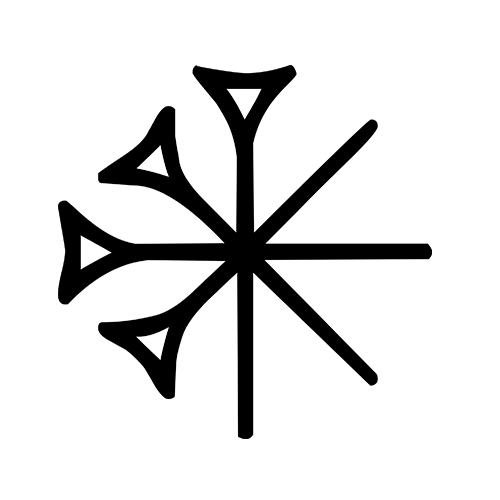Enkidu (Sumerian: 𒂗𒆠𒆕) was a semi-divine figure mentioned in Sumerian literature as the friend of Gilgameš. Older literature portrays him as a wild man created by Aruru.
Creation and visual depictions of Enkidu
Enkidu is often depicted as a wild looking humanoid. This interpretation stems heavily from how Enkidu is described in the Epic of Gilgameš. In the Akkadian tradition, he was created by An. In the Sumerian tradition, he is reportedly created by the deity named Aruru. In both cases, Enkidu is represented as a wild looking man who lives among the animals. His purpose was to confront Gilgamesh, the king of Uruk who was oppressing his people.
Enkidu as the bull-man
Some scholars have speculated that Enkidu is depicted as a bull-man in Mesopotamian art. Jeremy Black and Anthony Green have taken a clear stance in asserting that this is not the case.
"There is no basis for the suggestion that the figure of the bull-man in art represents the legendary hero Enkidu."
While this representation may seem trivial, it is important to remember how often the bull-man is shown in Mesopotamian cylinder seals and inscriptions.
Mythological roles
Enkidu takes on various mythological roles in Mesopotamian literature. Notably, there is an important contrast between Sumerian and Akkadian literature.
Relationship to Gilgamesh
In Sumerian literature, Enkidu is depicted as the servant of Gilgamesh, whereas they are friends and equals in Akkadian literature.
Debated death in Gilgameš, Enkidu, and the Nether World
There is debate whether Enkidu dies in the Sumerian poem titled Gilgameš, Enkidu, and the Nether World. In "ETCSL 1.8.1.4 (Version A)," Enkidu does go to the netherworld but is not explicitly stated as being dead. Jeremy Black has notably indicated that Enkidu does indeed die in the and it is his ghost (gidim) that is brought back to life by Utu. In any case, Enkidu is confidently dead in the later Babylonian version of the Epic of Gilgameš. In contrast, scholar Alhena Gadotti argued in 2014 that Enkidu does not die in the Sumerian poem. Instead, she argued that Enkidu did not die a traditional death; rather, the netherworld took him and he never belonged there in the first place. Gadotti's stance, moreover, argued for a Sumerian hero cycle that originated from Gilgamesh himself.








